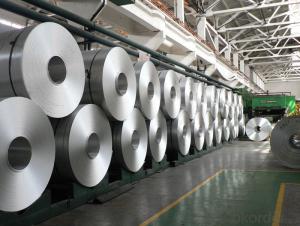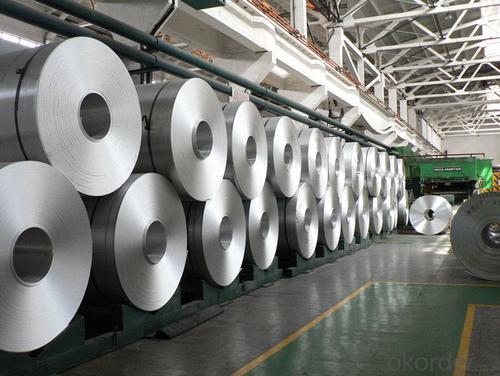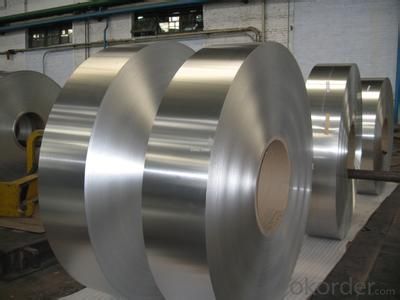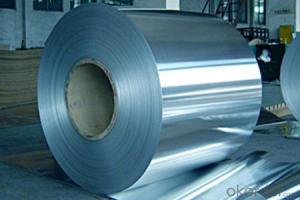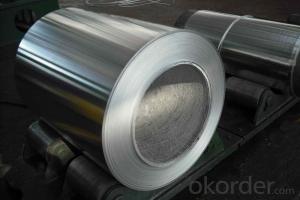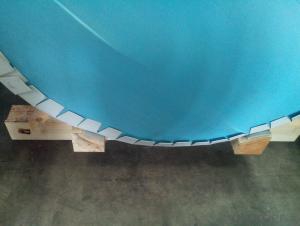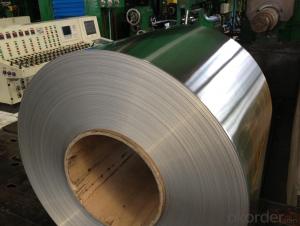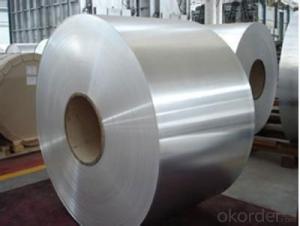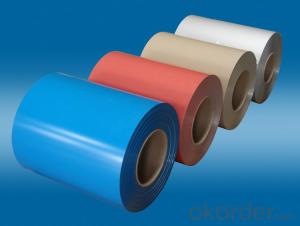Aluminum Camper Siding Sheets - AA5052 Aluminium Coils for Can End Stock Package
- Loading Port:
- Shanghai
- Payment Terms:
- TT OR LC
- Min Order Qty:
- 20 m.t.
- Supply Capability:
- 50000 m.t./month
OKorder Service Pledge
OKorder Financial Service
You Might Also Like
Specification
1.Structure of Aluminium Coils for Can End Stock Package
Aluminium Coils for Can End Stock Package is one semi-finished aluminium material. This strip can be used to produce aluminium tab for beverage can. The alloy AA5182 is widly used in can tab, end and can body. Its weight is much lower than steel. So many customers choosed aluminium material instead of steel.
2. Main features of Aluminium Coils for Can End Stock Package
a.Competitive price---We have our own mills and can produce mill finished aluminium coils, so we can control the production cost better.
b.Professional after-sale service---We have more than 15 years exportation experience and you need not worry about the exporation problems.
c.Fast delivery time---We can control the delivery time within 35 days.
3. Image of Aluminium Coils for Can End Stock Package
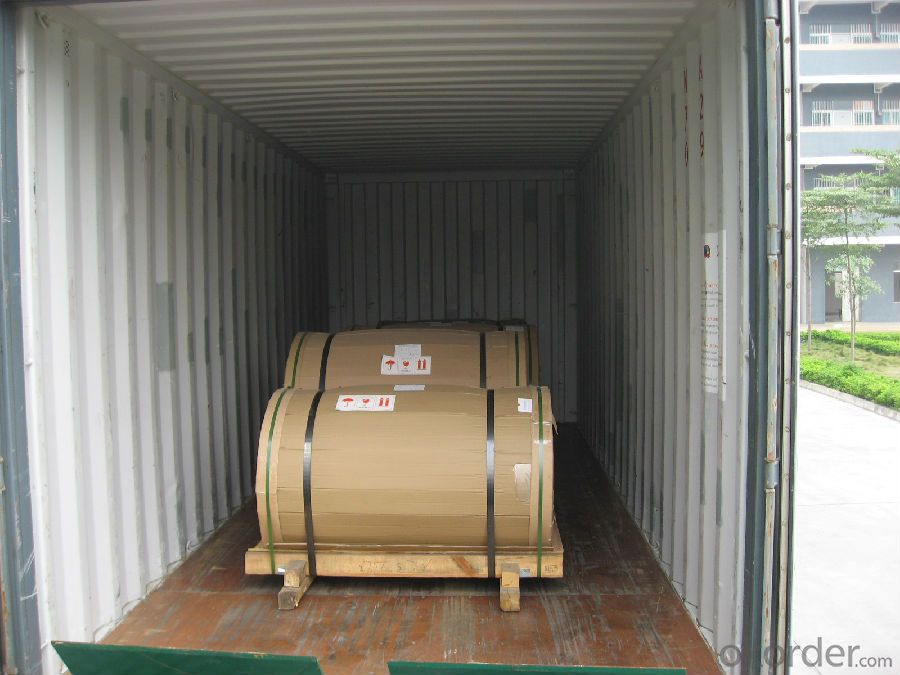
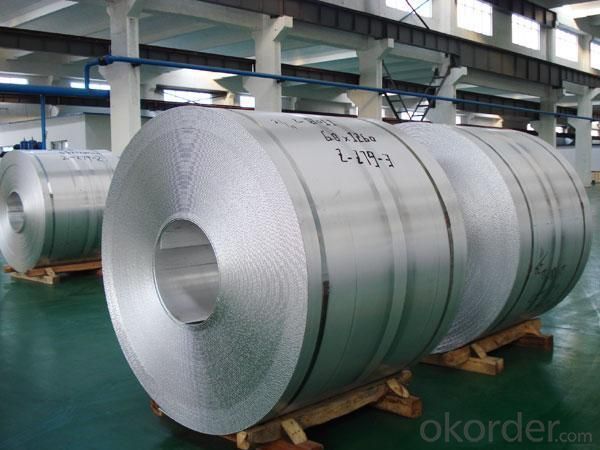
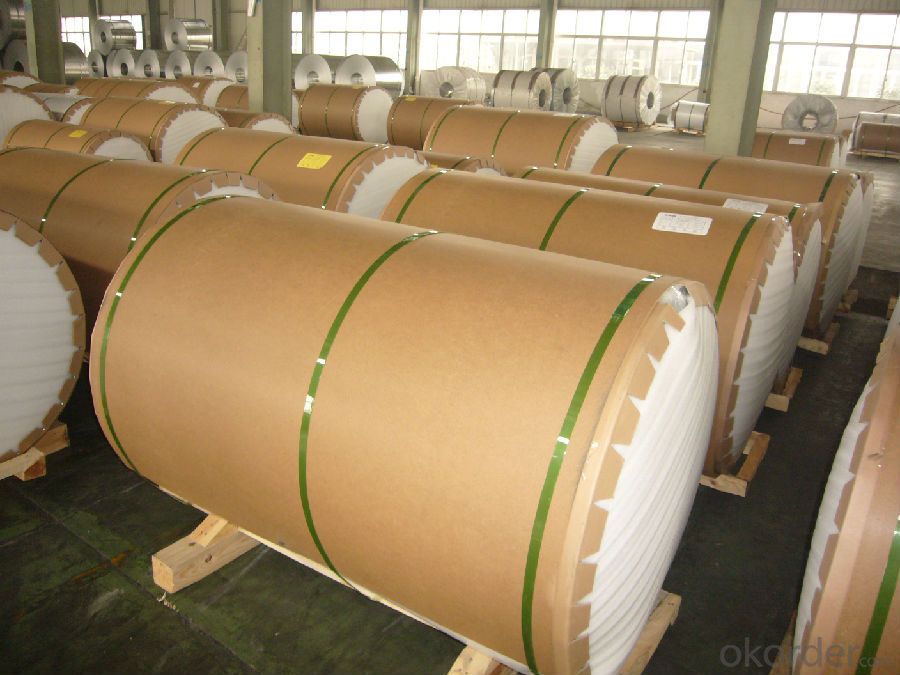
4. Product Specification of Aluminium Coils for Can End Stock Package
| Alloy | Temper | Thickness | Width | Weight |
| AA5052 | H19 | 0.22mm-0.26mm | 600mm-2000mm | 2tons |
5.FAQ of Aluminium Coils for Can End Stock Package
What is the quality standard?
---Usually our standard is GB3880-2006
What is the largest width?
---It is 2300mm
What is the MOQ?
---Usually we can accept 20 tons.
- Q: I have to wire solar DC photovoltaic panels and have always used at least an 8 gauge wire. Recently, I installed a solar electric fence and they recommended special electric fence wire that can handle 10,000 volts. It looks aluminum. The fence techs told me copper is only rated for 600 volts. And the power will leak through the insulation. They also say copper will corrode and created insulated spots. Does this mean that aluminum doesn't corrode and is it superior to copper? Is is all a lobbying scam to force us to buy copper? Can I use the electric fence wire in my solar wiring?
- I believe the fence techs are mistaken. On an electric fence, the wire is basically bare, and the periodic 10 kV shocks are very low current. Aluminum is cheap, and once it develops surface oxidation, will last. Copper would last, too - it would just cost more. For photovoltaic panels, copper is almost always the wire of choice. At #8 or larger, use stranded, of course. Copper has less resistance, which will be important in low-voltage PV. Also, aluminum wire cannot be simply put into fittings designed for copper; it must use special fittings designed for aluminum, or connected to copper with a wire nut and antioxidant.
- Q: How much is the aluminum plate with a thick 2mm 1000*2000? Thanks
- Aluminum sheet refers to the rectangular plate made of aluminium ingot rolled and divided into pure aluminum plate, alloy aluminum plate, thin aluminum plate, middle thick aluminum plate and pattern aluminum plate.
- Q: Is it possible to construct furniture using aluminum sheets?
- <p>Yes, you can use aluminum sheets to make furniture. Aluminum is a lightweight, durable, and corrosion-resistant material that is often used in modern furniture design. It can be easily shaped and welded, making it suitable for a variety of furniture pieces such as tables, chairs, and shelving. However, it's important to consider the design and structural integrity, as well as the finish and comfort, when creating furniture with aluminum. It's also advisable to use appropriate tools and techniques to ensure safety and quality in the construction process.</p>
- Q: which kind of material won't influence magnet attracting iron nail? Does copper sheet or aluminum sheet influence it?
- Copper coil will impede magnetic penetration. People separate the magnet from the workpiece of machine tool to avoid magnetic short circuit and attraction loss, making magnetic line of force go through the workpiece. An opening copper bush is added into the iron core of magnetic closing coil or opening solenoid to avoid the iron core being attracted on the external iron piece and stop operation. The opening is for avoiding eddy formulation and short circuit, iron core in copper bush is the ruled magnetic circuit.
- Q: 5052 can aluminum plate be machined with laser cutting machine?
- Can cut, but the incision does have cut marks, if processing 3 mm below the thickness, incision quality will be better.
- Q: What are the different methods of cutting aluminum sheet?
- Various methods exist for cutting aluminum sheet, each offering unique advantages and applications. 1. Shearing: Employing a sharp blade, shearing provides a quick and efficient process for straightforward cuts. However, it may not be suitable for complex or intricate designs. 2. Laser cutting: By utilizing a high-powered laser beam, laser cutting achieves precise and clean cuts. This method is ideal for intricate designs, allowing for detailed and accurate cuts. Additionally, laser cutting can be automated, making it suitable for large-scale production. 3. Waterjet cutting: With a high-pressure stream of water mixed with abrasive materials, waterjet cutting is versatile and capable of handling various materials and thicknesses. It produces smooth and precise cuts without generating heat, making it suitable for heat-sensitive materials. 4. Plasma cutting: Plasma cutting involves using a plasma torch to heat and melt the aluminum sheet, resulting in a cut. It is a fast and cost-effective method, particularly for thicker sheets. However, the cut may not be as clean as laser or waterjet cutting. 5. CNC milling: By employing a rotating cutting tool, known as Computer Numerical Control (CNC) milling, material is removed from the aluminum sheet to create a cut. This method offers precision and the ability to produce complex shapes and designs. It is commonly used for prototypes or small production runs. When selecting the appropriate method for cutting aluminum sheet, factors to consider include desired cut quality, design complexity, material thickness, and production volume.
- Q: What are the advantages of utilizing aluminum sheets in construction projects in terms of environmental impact?
- <p>Using aluminum sheets in construction offers several environmental benefits. They are highly recyclable, which reduces waste and conserves natural resources. Aluminum is lightweight, reducing the carbon footprint associated with transportation. It also has a high strength-to-weight ratio, leading to less material usage and lower energy consumption in production. Additionally, aluminum's reflective properties can help in reducing heat absorption, contributing to energy efficiency in buildings. Moreover, aluminum production technology has advanced to minimize harmful emissions, making it a more sustainable choice for construction materials.</p>
- Q: Are aluminum sheets resistant to staining?
- Indeed, staining is not a concern when it comes to aluminum sheets. This is due to the formation of a natural oxide layer on the surface of aluminum when it is exposed to air. The presence of this oxide layer serves as a safeguard, effectively preventing both staining and corrosion. Nevertheless, it is worth mentioning that extended contact with specific chemicals or acidic substances can still result in discoloration or staining on aluminum sheets. To maintain the impeccable appearance and durability of aluminum sheets, it is advisable to engage in regular cleaning and maintenance practices.
- Q: Do 101 aluminum sheets require any special maintenance or care?
- 101 aluminum sheets do not require any special maintenance or care. Aluminum is a durable and corrosion-resistant material, so it can withstand various environmental conditions without deteriorating. However, to ensure their longevity and optimal performance, it is recommended to keep them clean from dirt or debris by regularly wiping them with a soft cloth or sponge. Additionally, avoiding abrasive or harsh cleaning agents is advisable to prevent any potential damage to the aluminum sheets. Overall, with minimal attention and care, 101 aluminum sheets can maintain their quality and appearance for an extended period.
- Q: Are 101 aluminum sheets suitable for food-grade applications?
- Yes, 101 aluminum sheets are suitable for food-grade applications. 101 aluminum is a commercially pure alloy with excellent corrosion resistance and good formability. It has a low chemical reactivity, which means it does not react with acidic or alkaline foods, making it safe for use in food-grade applications. Additionally, 101 aluminum sheets can be easily cleaned and sanitized, making them an ideal choice for food processing, packaging, and storage.
Send your message to us
Aluminum Camper Siding Sheets - AA5052 Aluminium Coils for Can End Stock Package
- Loading Port:
- Shanghai
- Payment Terms:
- TT OR LC
- Min Order Qty:
- 20 m.t.
- Supply Capability:
- 50000 m.t./month
OKorder Service Pledge
OKorder Financial Service
Similar products
Hot products
Hot Searches
Related keywords
